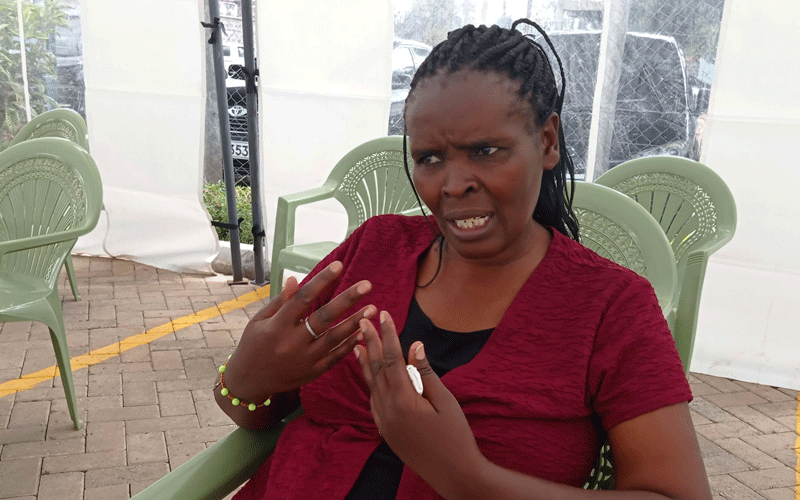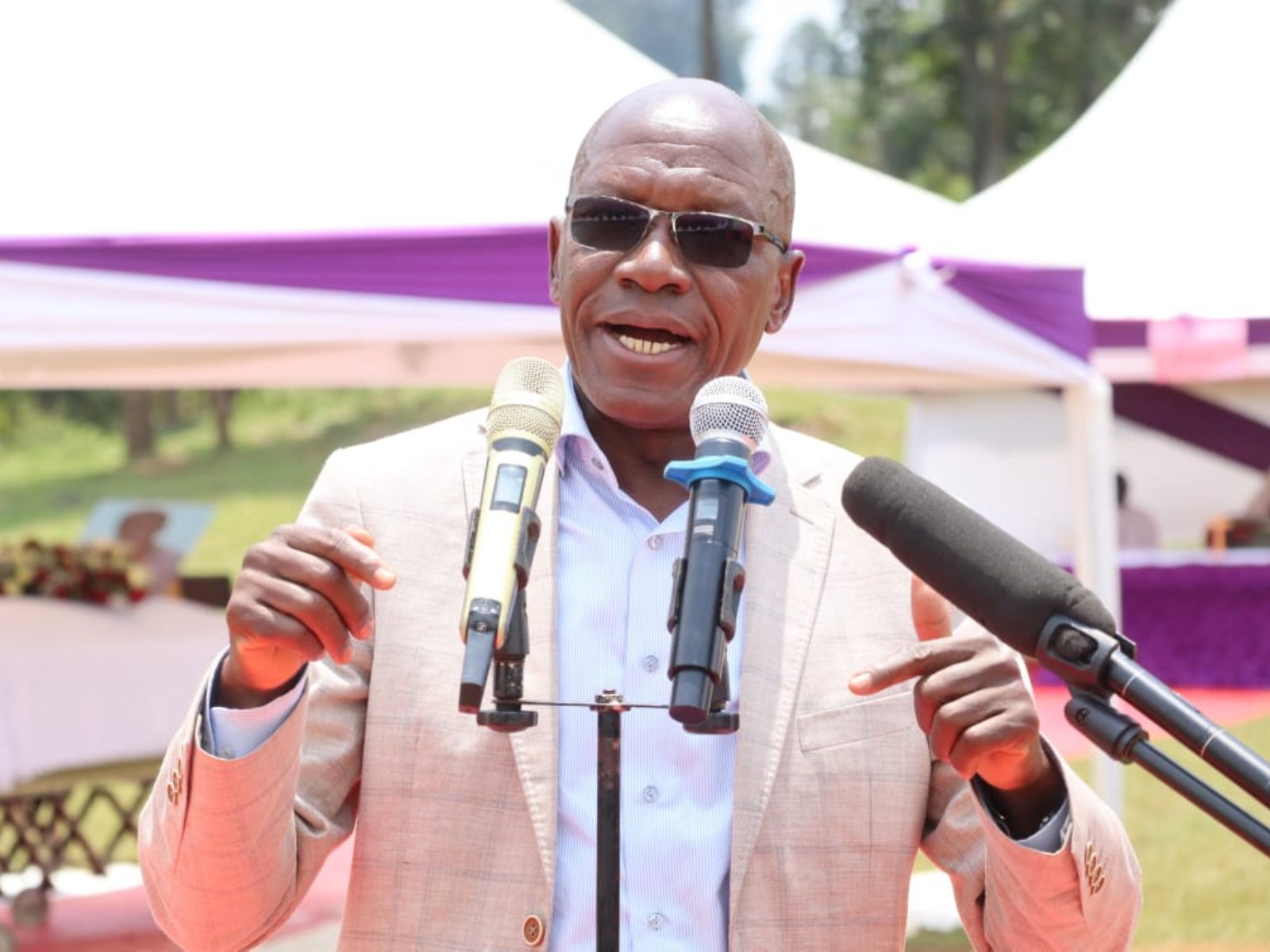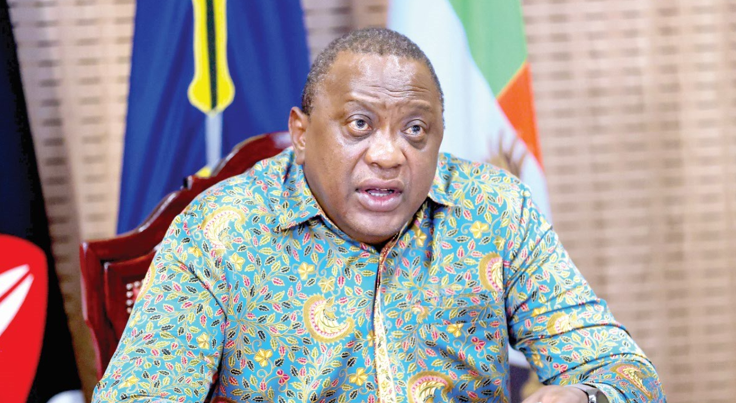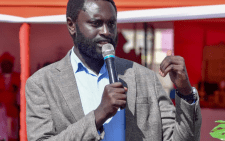Raising a special needs child while in palliative care
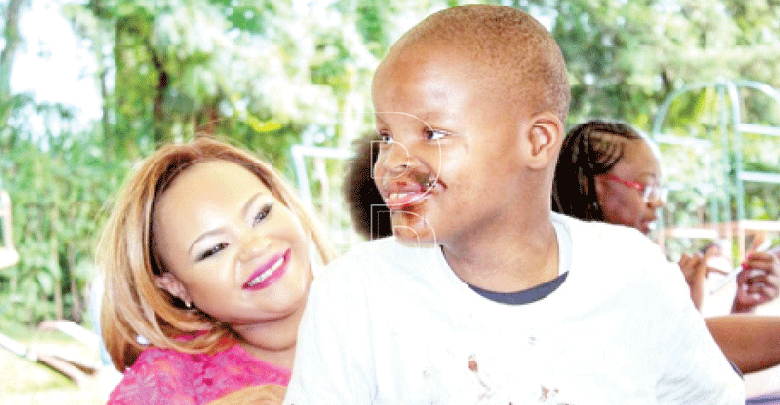
by Harriet James @harriet86jim
Fifteen years ago, when Charity Kitawa Mbogho received news that she was expecting a baby, she was overjoyed.
The thought that she would be a mother after having two miscarriages made her wait expectantly for the day she would deliver.
Her pregnancy went on smoothly and so did her delivery on March 12, 2005. It was a bouncing baby boy whom she named Luke.
However, as the baby grew, Charity noted his development was slow. “When we consulted a paediatrician, he would say that everything was fine and that boys are normally slower at attaining their growth milestones,” says Charity.
After one year, Luke started getting seizures. As he grew older, they intensified. Doctors and specialists had different diagnosis.
One said he had rickets, another said it was absent seizures while another said he had hydrocephalus.
One day, she met someone on social media whose son had autism. He recommended a hospital in South Africa.
In 2006, Charity, took her son to South Africa for further treatment and diagnosis.
One specialist suggested that Luke had Pallister-Killian syndrome (PKS), a multi-system disorder characterised by extremely weak muscle tone (hypotonia) in infancy and early childhood.
Another doctor even said the boy would never speak or walk. However, it was confirmed that Luke is autistic.
Strong alone
“When I heard the news, I broke down. I was asked whether I had a support system in terms of friends and family, which I didn’t have.
I just felt alone since my mum had just succumbed to brain tumour and I wasn’t sure of the support system that I had,” says Charity.
Upon returning from South Africa, Charity started looking for a job. She had quit her job, but with the turn of events, she needed means to support her family.
She was lucky to get one at a local company and worked on various positions before becoming the group human resource manager.
Charity ensured that she declared it openly to her employer that she had a special needs son.
“Whenever I had a job interview, I would tell them about my son because I felt a potential empoyer needed to know that I could get a phone call any time.
I did not want to gain sympathy, but understanding. I would encourage other parents not to hide the condition of their children as well,” she says.
However, life would give Charity another blow. On January 9, 2018. As she was driving to work, she suddenly felt a sharp pain in her chest, which made her left arm immobile for a moment.
While she managed to get to work and still give New Year gifts to her workmates, she went to the hospital and received a shocking diagnosis.
“I had a blood clot and the next thing I remember is being wheeled to theatre,” Charity narrates.
Tragedy after tragedy
She was diagnosed with an acute myocardial infarction, a medical name for a heart attack. After the operation, the clot moved to her heart and the doctors had to do stent implantation.
A stent is a tiny, expandable metal mesh coil. It is put into the newly opened area of the artery to help keep the artery from narrowing or closing again.
On February the same hear, she had a clot in her brain, which affected her right side and speech. She was paralysed and couldn’t do anything on her own.
In December the same year, she was taken ill again and the doctors sought to know what was causing the clots.
She was diagnosed with antiphospholipid syndrome, a condition where the immune system mistakenly attacks normal proteins in the blood.
Early last year, she was diagnosed with lupus, another autoimmune disease where one’s immune system attacks your tissues and organs.
The disease attacked her kidney and liver and the doctors advised that she be on palliative care. “I just watched my life change in a blink of an eye,” she says.
What broke her heart, however, is the fact that she couldn’t hold her son, which sometimes made her feel less of a mother.
She had to get a nurse and another nanny to care for both her son and herself. This meant an extra expense to her already strained budget. She was also relieved from work on medical grounds.
“I used to be a workaholic, got to work early and even carried work home. Now I am confined in a wheelchair, just thinking about my situation” she laments.
Despite the challenges, Charity has currently partnered with a friend to do branding and assist others get jobs in a recruiting firm.
Last year, she took Luke to a boarding school that caters for autistic children and also offers therapy.
When schools closed due to Covid-19, she hired a teacher to teach him life skills such as taking a birth, feeding himself, using the toilet as well as dressing himself.
At 15, Luke cannot talk, he just makes sounds. “Taking care of a child with special need is a 24-hour job. Your whole life, as a parent, is just taking care of them,” she says.
Being on palliative care, the doctors have advised the single mother to plan for her future in case she dies.
“I’m thinking of giving Luke up for adoption. That way, it will be easy for him to adapt in case I leave. He won’t feel like I have abandoned or rejected him.
I know I can’t guarantee that he will be loved the same way that I love him should I die, but I trust in God to keep him safe,” she says.
